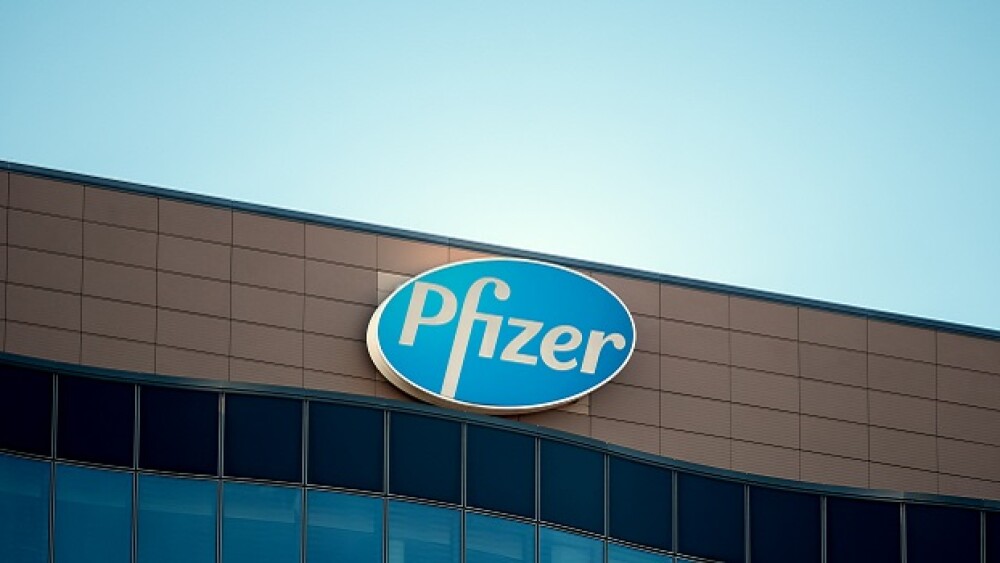Marstacimab decreased bleeding rates by 92% in patients with severe hemophilia A and moderately severe to severe hemophilia B without inhibitors.
Pictured: Blue and white Pfizer sign on building/cbies/Adobe Stock
Tuesday, Pfizer posted promising results from its Phase III trial of an investigational therapy to reduce bleeding rates in patients with hemophilia A or B.
Patients with hemophilia are missing or do not make enough of the clotting factors that prevent excessive bleeding, and the standard treatment consists of regular injections of the lacking factor. However, repeated infusions are a treatment burden for patients, and between 25% and 30% of people with hemophilia A cannot continue taking factor replacement therapies as their bodies develop inhibitors to the needed factor.
Pfizer’s prophylactic treatment, marstacimab, is an antibody that blocks the tissue factor pathway inhibitor (TFPI), a naturally occurring protein that prevents blood clotting. This once-weekly injection is designed to release that molecular brake to reduce bleeding.
In the 12-month, Phase III BASIS trial, marstacimab reduced bleeds by 92% in patients with severe hemophilia A and moderately severe to severe hemophilia B without inhibitors to Factor VIII (FVIII) or Factor IX (FIX). The annual bleed rate, a clinical measure of treated bleeds, saw a 35% reduction.
The antibody is also being tested in patients with inhibitors of FVIII and FIX. Results from the inhibitor cohort of the BASIS trial are expected in late 2024.
Pfizer is taking these data to regulators “with the goal of initiating regulatory filings in the coming months.”
Two additional programs for hemophilia are also in the works. Pfizer announced positive topline results from its Phase III study of an investigational gene therapy for the treatment of adult men with moderately severe to severe hemophilia B last December. Its hemophilia A trial with Sangamo Therapeutics had been placed on hold but re-opened recruitment last fall.
On the heels of the pandemic boom, Pfizer stock has declined 36% over the past two years. The company continues to seek out new products to bolster its post-COVID sales, and as the hemophilia market is projected to reach $26.9 billion by 2031, this space could be the answer.
Pfizer is also developing an oral weight-loss drug, danuglipron, which is similar to Novo Nordisk’s blockbuster, Ozempic. Results from a Phase II study of the drug showed patients dosed with danuglipron showed similar weight loss to Ozempic, according to Reuters.
With weight loss drugs being one of big pharma’s hottest market areas, danuglipron could be a potential windfall for Pfizer, and both the diabetes and obesity markets have massive potential. Statista predicted revenues for anti-diabetes drugs will grow to over $80 billion by 2027.
Kate Goodwin is a freelance life science writer based in Des Moines, Iowa. She can be reached at kate.goodwin@biospace.com and on LinkedIn.






